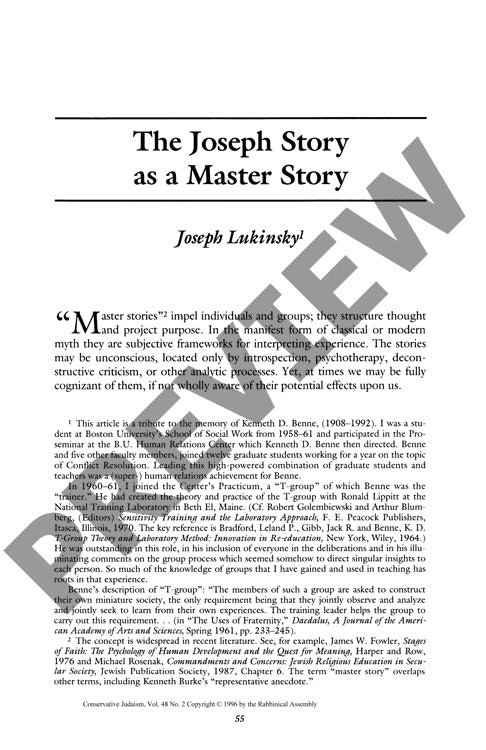The Joseph Story as a Master Story
Couldn't load pickup availability
What if Freud had built his theory of human development on the biblical Joseph story instead of Oedipus? Kenneth D. Benne's 1961 speculation opens compelling alternatives for understanding psychological growth and group dynamics. Through narrative analysis of Genesis 37-50, the leadership and membership styles of Jacob, Judah, Reuben, and Joseph illuminate patterns of conflict resolution, peer relationships, and community reconciliation that challenge traditional developmental frameworks. Close textual analysis of the biblical narrative, combined with group dynamics theory and educational role-play techniques, reveals that unlike the Oedipal emphasis on vertical parent-child relationships, the Joseph story prioritizes horizontal, intra-generational peer dynamics and demonstrates remarkable capacity for personal growth, forgiveness, and community restoration. The analysis shows how different leadership approaches—from Jacob's favoritism and poor communication to Judah's transformative learning and Joseph's resilient idealism—affect group cohesion and conflict resolution. The Joseph narrative ultimately offers a valuable alternative paradigm for understanding human development that emphasizes interdependence rather than autonomy, making it particularly relevant for educational, therapeutic, and community settings where reconciliation and collective growth are central concerns.

More Information
-
Physical Description
-
Publication Information
Published 1996
ISBN
-
Publication Credits
Joseph Lukinsky

